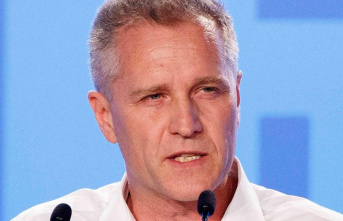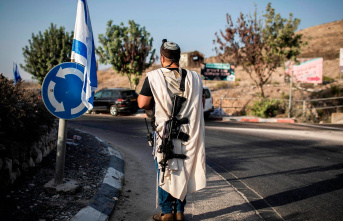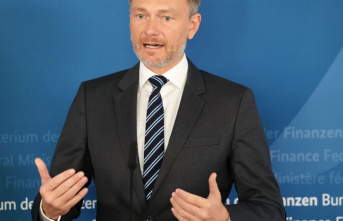Shortly before the presidential elections in Brazil, all inhibitions seem to be falling: the team of right-wing incumbent Jair Bolsonaro compares his left-wing challenger Luiz Inácio Lula da Silva to the devil and places him in the vicinity of a powerful criminal syndicate. Lula's campaigners back down and portray the head of state as a cannibal and a pedophile.
Lula surprisingly won the first round of the presidential election in the largest country in Latin America on October 2, just ahead of Bolsonaro. Before the runoff election on Sunday, the race is completely open - and both candidates are currently fighting for every vote with almost all means. In the final stretch, the attacks in an already bitter election campaign have become even dirtier. Lula's team is now reacting to Bolsonaro's tactics with a similar strategy, says Professor Carlos Melo from the Insper University in São Paulo. "It's only natural that in the end of a war like this everyone takes part."
politics and social media
The mood in the country is heated, the population is divided. The cracks run through families, groups of friends, and neighborhoods. "We avoid the topic of politics in order to continue to get along well with each other," says Bolsonaro supporter Claudia Pizarro Motta Barrozo. When she and her son Diego do talk about it, a heated debate quickly ensues. The Lula voter says: "I thought so, but now I'm really shocked to hear what my mother's positions are." Motta gets most of her information from WhatsApp groups for Bolsonaro supporters.
Social media is very important in Brazil, many people only get their information about politics there. However, the social networks are not about the political goals or government plans of the candidates, but about accusations and conspiracy theories, about morality, faith and sex. "The reach of fake news is greater than that of real information, and lies seem to generate more interactions than facts," says Anja Czymmeck, head of the Konrad Adenauer Foundation in Brazil.
The closer the election approaches, the heavier the media barrage becomes. Compared to the mudslinging on the Internet, the TV debates, in which Bolsonaro and Lula make accusations and call each other liars, seem almost civilized. Due to the increasingly bizarre allegations on social networks, Lula feels compelled to publicly state that he has not made a pact with the devil.
Bolsonaro, in turn, spoke in an interview about the alleged attraction between him and Venezuelan teenagers, whom he believed to be prostitutes - a storm of indignation followed. Actually, the right-wing head of state probably wanted to warn that if Lula were to win the election, Brazil could face the same fate as the socialist crisis-ridden Venezuela. But that backfired: The Lula site happily distributed the video on the Internet and Bolsonaro finally had to protest that he was not a pedophile.
Dirty campaign
The topics of sex, violence and gender are actually among the classics in the arsenal of weapons used by Bolonaro's Internet trolls. His son Carlos is orchestrating the information war on social media, relying on the president's supporters but also on bots. Half of the retweets in support of Bolsonaro on the first official campaign day in August came from automated software, researchers have found. For Lula it was about 25 percent.
"This is intended to deceive public opinion in order to discredit certain people or make them look good," says Karina Santos from the Institute for Technology and Society in Rio de Janeiro. "This can directly affect voting decisions, which is worrying." Experts fear Bolsonaro could also use his digital army to challenge the outcome in a narrow defeat.
Ex-President Lula, on the other hand, presents himself as the savior of democracy. He leaves the dirty part of the election campaign to his man for the rough stuff. The team around MP Andre Janones, who has two million followers on Instagram, keeps scattering videos, some of which are years old, that put Bolsonaro in a bad light. A video is supposed to show the president with the Freemasons, and in an excerpt from an interview with the "New York Times" Bolsonaro says he almost ate an indigenous man.
The judiciary now wants to put a stop to the wildest excesses of the mud fight on the Internet. The Supreme Electoral Court can order social media and campaign teams to remove "fake news" within two hours. Bolsonaro supporters see this as an attack on freedom of expression and recently protested against the alleged censorship with their mouths taped shut. But even if some false information is actually deleted: Shortly before the decisive election in Brazil, the flood of hate, slander and conspiracy theories on the Internet does not seem to be abating.












